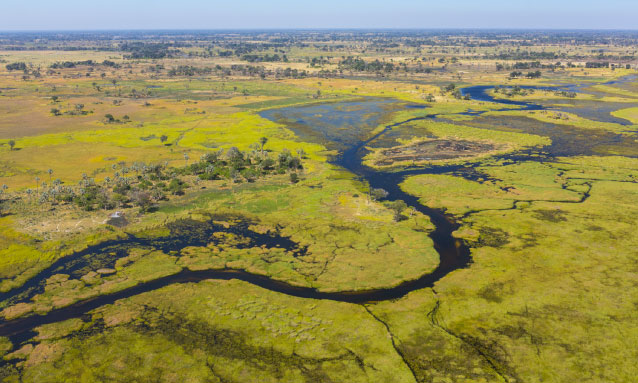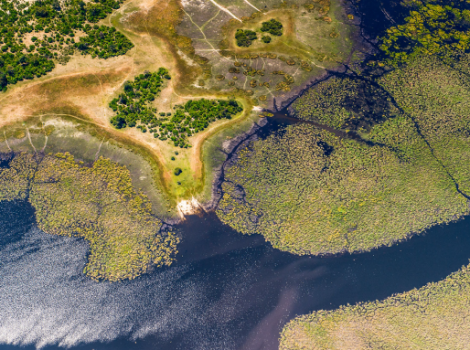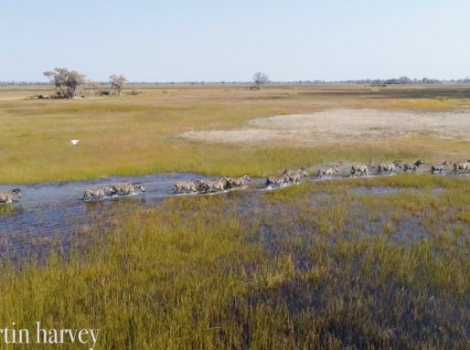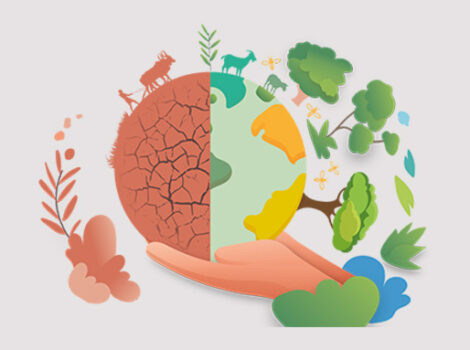
The Botswana government remains relentless in its bid to allow Canadian oil and Gas Company ReconAfrica smooth passage to undertake exploration activities in areas close to the world heritage sites Okavango Delta and Tsodilo Heritage Site, according to the Sunday Standard.
The Ministry of Minerals has just announced Recon Botswana (ReconAfrica subsidiary) has begun its activities in Botswana focused on acquiring and processing, analysis and interpretation of gravity, high-resolution aeromagnetic data and the commissioning of the Environmental Impact Assessment process as well as obtaining relevant environmental permits to conduct exploration activities, the publication says. This comes amid pressure from UNESCO, National Geographic and Oscar Award-winning Hollywood actor Leonardo DiCaprio, among others, following drilling activities in Namibia.
Drilling by the parent company, ReconAfrica, is already underway in Namibia where the company holds a 90% interest in a petroleum exploration licence in the northeast region. The exploration license covers the entire Kavango sedimentary basin, an area of approximately 25,341.33 sq km which, based on commercial success, entitles ReconAfrica to obtain a 25-year production licence. The company says the Kavango Basin offers a thick Permian sequence that they believe will supply a huge conventional oil play. The Kavango Basin also covers parts of Botswana and Angola. The move by both Namibia and Botswana governments to licence the company has come under immense pressure from international conservationists and pressure groups over fears the company activities will have devastating effects on the Okavango Delta ecosystem. UNESCO’s World Heritage Centre announced in late December 2020 that it was alerted of the situation by civil society groups’ petitions regarding ReconAfrica’s planned activities.
“The Centre is following with attention and concern the oil and gas exploration projects in north-eastern Namibia and north-western Botswana by the Canadian company Reconnaissance Africa (ReconAfrica), which could potentially impact on the Okavango Delta and Tsodilo World Heritage properties,” the organisation said.
UNESCO said it then requested more information on the projects and their potential impacts on the World Heritage sites. Following a meeting with the two governments, Botswana eventually agreed to exclude the Tsodilo Hills World Heritage site from the areas initially planned for the exploration activities. While the Minister of Mineral Resources, Green Technology and Energy Security Lefoko Moagi recently assured the international press in a virtual conference that the planned activities were not within the buffer zones of the Okavango Delta and Tsodilo Hills, he failed to provide specific coordinates of the area identified for the explorations. Moagi, who spent the majority of the conference on a defensive mode, insisted the Botswana government does not allow any exploration activities within the core and buffer zones of World Heritage sites, adding that the undertaking was made as part of the Listing process of the Okavango Delta.
“In the first two years of its exploration programme, Recon Botswana has not planned to carry out any invasive methods of prospecting, including drilling and no physical exploration activities during the first year of exploration have been anticipated,” the Minister said.
He said it was worth noting that the terms and conditions of the Exploration licence require Recon Botswana to conduct its operations per good industry practice, in such manner as to preserve ‘in as far as is possible the natural environment, minimise and control waste or undue loss of or damage to natural and biological resources, to prevent and where unavoidable, promptly treat pollution and contamination of the environment. The Minister said the company would take no steps which may unnecessarily or unreasonably restrict or limit further development of the natural resources of the concession area or adjacent areas (which may include the Delta and Tsodilo Hills).
National Geographic previously reported ReconAfrica’s license area in Namibia and Botswana encompasses the Kavango-Zambezi Transfrontier Conservation Area and, initially, the Tsodilo Hills.
“The license area supports various endangered species, such as African wild dogs, white-backed vultures and Temminck’s ground pangolins. Africa’s largest remaining herd of savanna elephants moves through it. In Namibia, the license area is home to more than 200,000 people and six locally managed wildlife reserves, or conservancies,” National Geographic says.
Namibian environmental assessment practitioner Sindila Mwiya was also quoted as having said ReconAfrica’s test drilling would be done in an elephant migration corridor between two national parks, which is also where the company plans to carry out its seismic survey. Coincidentally, National Geographic has said in 2020, Namibia announced that it would hold an auction to sell 90 elephants that live in the vicinity of ReconAfrica’s test wells.
“Biologists are concerned about how the seismic survey’s sound waves will affect elephants, which communicate with low-frequency seismic waves ‘heard’ through their sensitive feet.
These vibrations provide information about other herds, water sources and potential danger,” National Geographic says.
Minister Moagi recently told a press conference that the Ministry had contacted some of Botswana’s embassies in Europe and the USA to share the necessary information for the various offices to engage international organisations such as the UN, UNESCO and other organisations requiring clarification on the matter. This was done in a bid to allay fears over Recon Botswana’s explorations.



